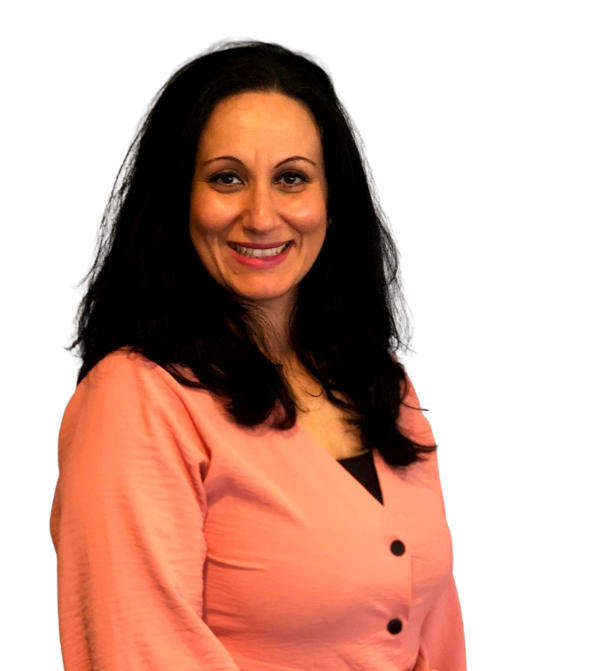Mastering the Most Common Job Interview Questions
Prepare thoroughly for your next job interview with this article on the most commonly asked interview questions – and how to answer them. Our tips and techniques will help you make a great impression and significantly increase your chances of landing your dream job.
Share blog

Congratulations! You’ve been invited to a job interview. The first hurdle is cleared, but you still have a way to go until the finish line. Prepare thoroughly for your next job interview with this article on the most commonly asked interview questions – and how to answer them. Whether your ambitions lie in finance, business support, sales, human resources, or the multilingual field, the tips and techniques below will help you make a good impression and greatly enhance your chances of securing your dream job.
1. Tell me about yourself
This is often the first question asked in 9 out of 10 job interviews. Recruiters often start broad, not because they don’t know where to begin, but to see what your key attributes and information about yourself are. Therefore, prepare this question well! It offers you a unique opportunity to present yourself as the ideal candidate.
Go beyond your resume and talk about your personal interests, professional motivations, and how they relate to the position you’re applying for. Use a storytelling approach to make your answer more engaging. For example: “I’ve always had a passion for technology and problem-solving, which is why I aspire to a career in software development. Outside of work, I enjoy kayaking, preferably in the middle of nowhere. This helps me stay focused and resilient under pressure.”
Don’t make your answer too broad and don’t get lost in superficial information about yourself. The employer probably wants to know briefly about your ambitions, what characterizes you as a person, your education, and work experience. Tailor the information you provide to the job description and tell more than what’s already in your cover letter and resume. Preparing a short pitch is also a great way to nail the answer to this broad question.
2. What are your strengths and weaknesses?
Technically, these are two questions in one, but they are closely related and require more or less the same approach. Therefore, we’ll address them together. Start by asking around in your environment how people see you. People who know you well can tell you where they think you excel and where there’s room for improvement.
Choose strengths that are directly relevant to the position and weaknesses that you are working on improving – and support both with examples. For example: “One of my strengths is my ability to effectively communicate with both technical and non-technical team members. Being able to relate to colleagues and clients with different backgrounds is useful for leading diverse project teams. I’m working on improving my time management skills by using various tools and techniques. One of the tools I’ve integrated into my daily work is the ‘Pomodoro technique’, where I divide my work time into periods of 25 minutes, separated by short breaks. This helps me stay focused and energized and has already led to a significant improvement in my productivity.”
Use the STAR method to provide examples (Situation, Tasks, Activities, Results), making the story concrete. Your potential employer will appreciate that!
3. Why are you leaving your current job?
It’s a tricky one. Of course, you want to be honest and share. But also make sure to always be positive about your previous experiences and employers, no matter what happened. Even if things did not end up very well, think about how this job helped you find what you actually enjoy, how you’ve learned from the experience. Sometimes we cannot control the circumstances, but we absolutely can control how we react to them. Being very grim or mean won’t make a positive impression and might as well make a future possible employer concerned.
4. Why do you want to work here?
This is your chance to show that you’ve done your homework and are genuinely interested in the company. Talk about specific projects, the organizational culture, and how they align with your personal and professional values. A good answer might be: “I’m impressed by your company’s innovative approach and commitment to corporate social responsibility. I believe that my background in sustainable development and my drive to make an impact align perfectly with your company’s mission and values.”
Start by reviewing the company’s website and social media channels. This way, you’ll learn about the company’s vision, core values, and corporate culture. You can then explain why you’re a good fit and the employer will immediately see that you’ve prepared well. In your answer, also include why you’re suitable for the position. This way, the employer can assess whether you fit the company culture and what your added value is for the company.
5. Why should we hire you?
Here, it’s important to emphasize your unique value proposition. In short: what is your added value to the organization? Focus on your specific skills, experiences, and achievements that set you apart from other candidates. Explain how you contribute to the team’s and company’s success. For example: “My unique combination of technical expertise and creative problem-solving ability enables me to devise innovative solutions that directly contribute to the company’s objectives. Furthermore, I have proven to be a reliable team player who can effectively collaborate under pressure.”
When preparing your answer, keep the job requirements of the vacancy in mind. Think about how you want the person interviewing you to sell you to their supervisor. The aforementioned STAR method is a good guide for preparing a concrete answer to this question.
6. Where do you see yourself in 5 years?
Your potential employer wants to see ambition, but when answering this question, strike a good balance between ambitious and realistic. And don’t forget to provide justification. Consider the growth opportunities of the position and within the entire company. An organization usually doesn’t want to hire someone who wants to move on to something that’s not possible within that company after a few years. Be careful, it’s also not wise to aim for the job of the person interviewing you. That might scare them off…
7. What is your salary expectation?
It’s important to be prepared with a well-researched salary range. Base your answer on research into market-competitive salaries in your industry and for this position, taking into account your experience and skills. Also, be open to negotiation. For example, you could say: “Given my extensive experience and the skills I can bring to this position, I would expect a salary range of X to Y. However, I am open to negotiation, depending on the fringe benefits.”
8. Do you have any questions or comments for us?
Demonstrate your engagement and interest by asking thoughtful questions that delve deeper into the role, the company’s future, and the company culture. This not only shows your enthusiasm for the role but also provides you with valuable information to determine if the role and the company are truly a good fit for you.
Bonus tip: Prepare exeamples
Prepare examples, like: What has been your biggest achievement? How do you resolve conflicts? How are you with colleagues? How do you behave in a stressful situation/ under pressure? Thinks of an example in advance to better unfold your value. Actions speak louder than words. Also, general answers not supported by real life experiences do not really count and are never 100% convincing.
What's next?
You’ve now prepared the seven most commonly asked interview questions. Next, think about what you think of your current job, what you do there, and what achievements you’ve made. They may well ask you about that during the interview. All that remains for us to say now is: good luck with your job interview!
For more insides on the preparation of job interviews, check this article > Beyond the resume: job interview psychology.
Applying via Exactpi Recruitment
When applying for a job through Exactpi, our recruitment consultants are happy to help you prepare for your job interview. They know the companies they introduce you to and can give you inside tips on how to present yourself well. Feel free to contact them to discuss your options.
Also take a look at
The second job interview is often more in-depth, focus…









